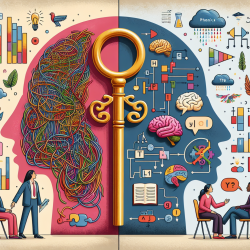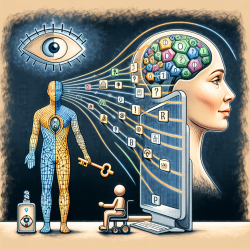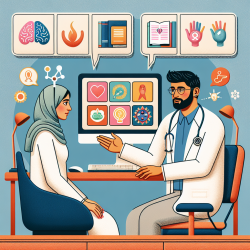Introduction
In the ever-evolving landscape of therapy and rehabilitation, integrating technology can significantly enhance outcomes for practitioners and patients alike. A recent study, "Interdisciplinary Inquiry via PanelGPT: Application to Explore Chatbot Application in Sports Rehabilitation," sheds light on the potential of chatbots in sports rehabilitation. This exploration offers valuable insights that can be extended to speech-language pathology and other therapeutic domains.
Understanding PanelGPT and Its Implications
The research introduces a novel model, PanelGPT, which utilizes ChatGPT's multi-role-playing capabilities to simulate interdisciplinary panel discussions. This model allows ChatGPT to assume roles of various experts, such as a physiotherapist, psychologist, nutritionist, and AI specialist, providing a comprehensive understanding of complex topics like sports rehabilitation.
Key Findings and Applications
The study highlights several benefits of using chatbots in therapeutic settings:
- 24/7 Support: Chatbots can provide round-the-clock assistance, offering reminders and personalized advice, crucial for continuous patient engagement.
- Personalized Feedback: By analyzing data, chatbots can offer tailored feedback, enhancing the patient's understanding of their progress and needs.
- Patient Education: Chatbots can educate patients about their conditions and the benefits of therapy, promoting active participation in their recovery journey.
- Ethical Considerations: The study emphasizes the importance of data privacy and transparency, ensuring that chatbot interactions are secure and ethical.
Challenges and Considerations
Despite the promising advantages, the study also identifies challenges such as limited interaction modes and potential inaccuracies in emotional advice. These challenges highlight the need for ongoing research and development to optimize chatbot applications in therapy.
Implementing Chatbot Technology in Your Practice
For practitioners looking to integrate chatbot technology, consider the following steps:
- Start Small: Implement chatbots for specific tasks like appointment reminders or basic patient education.
- Ensure Data Security: Prioritize data privacy by adhering to regulations like HIPAA and GDPR.
- Educate Patients: Inform patients about the role of chatbots in their therapy and how to effectively use them.
- Collaborate with Experts: Work with AI specialists to customize chatbot functionalities to meet your practice's needs.
Encouraging Further Research
The study encourages practitioners to explore further research in integrating AI and chatbots in therapeutic settings. By doing so, you can stay at the forefront of technological advancements and continuously improve patient outcomes.
To read the original research paper, please follow this link: Interdisciplinary Inquiry via PanelGPT: Application to Explore Chatbot Application in Sports Rehabilitation.










